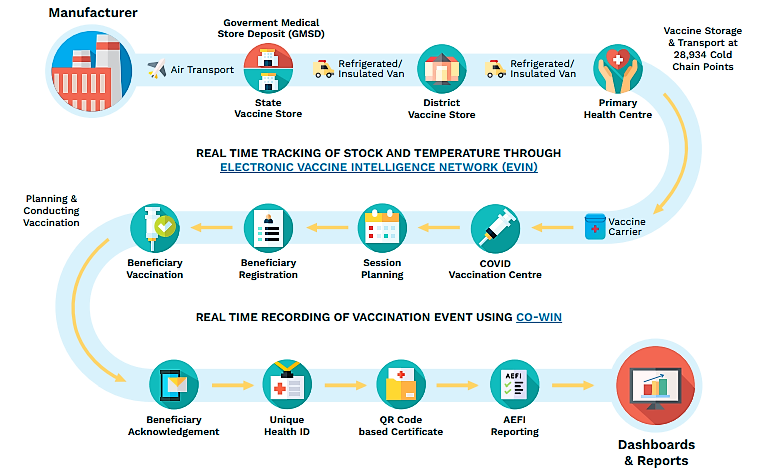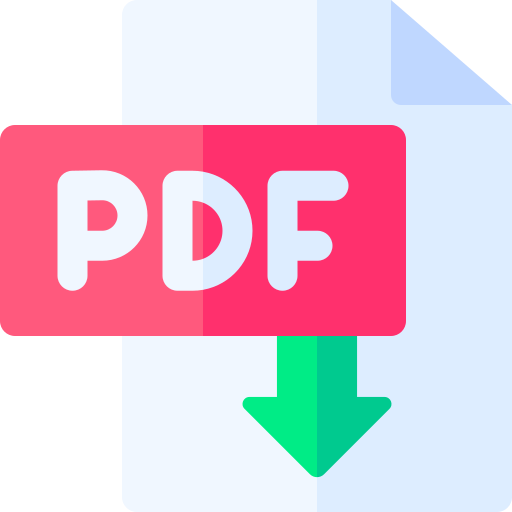The COVID-19 pandemic badly affected India, especially during the second wave that slammed the nation in March 2021 and resulted in a record number of daily new cases and fatalities. On January 16, 2021, India launched one of the largest COVID-19 vaccine campaigns in the history of the disease.
The Ministry of Health and Family Welfare (MOHFW) of the Government of India created the COVID-19 Vaccine Intelligence Network (CoWIN) digital platform to supplement eVIN and ease the distribution of COVID-19 vaccines in order to meet the expanding demands of the COVID-19 immunisation response.

Goals of the CoWIN Digital Platform
Ensure that each dose of immunisation is digitally acknowledged and produce a certificate with a QR code.
To give accurate real-time information on the number of people who have received vaccinations at each programme level in the public and private sectors.
Challenges Faced in Mass Vaccination
Numerous nations have had and do face difficulties in locating and immunising the target populations for COVID-19. Many low- and middle-income countries’ national immunisation programmes frequently do not include these target demographics.
Additionally, managing vaccination sessions in many nations is difficult, which leads to either overpopulation or a poor client experience.
- Logistics: The challenge of ensuring that vaccines reach the right people in a timely manner, especially in remote and hard-to-reach areas.
- Funding: Sufficient financial resources are required to procure, transport, store and administer vaccines on a large scale.
- Cold chain management: Vaccines have strict temperature requirements during storage and transportation, which can be difficult to maintain in some areas.
- Public hesitancy: Addressing concerns and misinformation about vaccines, and building public trust in their safety and efficacy.
- Limited health infrastructure: In some countries, there may be limited healthcare infrastructure and personnel to handle a large-scale vaccination effort.
- Equity and access: Ensuring that everyone has access to vaccines, regardless of their location or socio-economic status.
- Data management: Ensuring the privacy and security of vaccine recipient information, as well as tracking and analysing data to improve vaccine distribution and administration.
Potential of Blockchain Technology in Scaling Vaccination Efforts
Blockchain technology can help in mass vaccination by addressing some of the key challenges faced in this process:
Traceability: Blockchain provides a secure and transparent record of the vaccine supply chain, from production to administration, enabling real-time tracking and reducing the risk of counterfeiting and fraud.
Data privacy: Blockchain enables secure storage of vaccine recipient information, such as medical history and vaccine administration records, while ensuring privacy and consent through secure access controls.
Improved efficiency: Blockchain can automate processes such as appointment scheduling, vaccine tracking, and data analysis, reducing manual errors and improving the efficiency of the vaccine administration process.
Public trust: By providing a secure and transparent record of vaccine distribution and administration, blockchain can increase public trust and confidence in the vaccine supply chain.
Improved coordination: Blockchain can facilitate communication and data sharing between different stakeholders involved in the vaccine administration process, such as healthcare providers, government agencies, and vaccine manufacturers.
In conclusion, blockchain can help improve the efficiency, transparency, and security of the mass vaccination process, and help build public trust in the vaccine supply chain.




